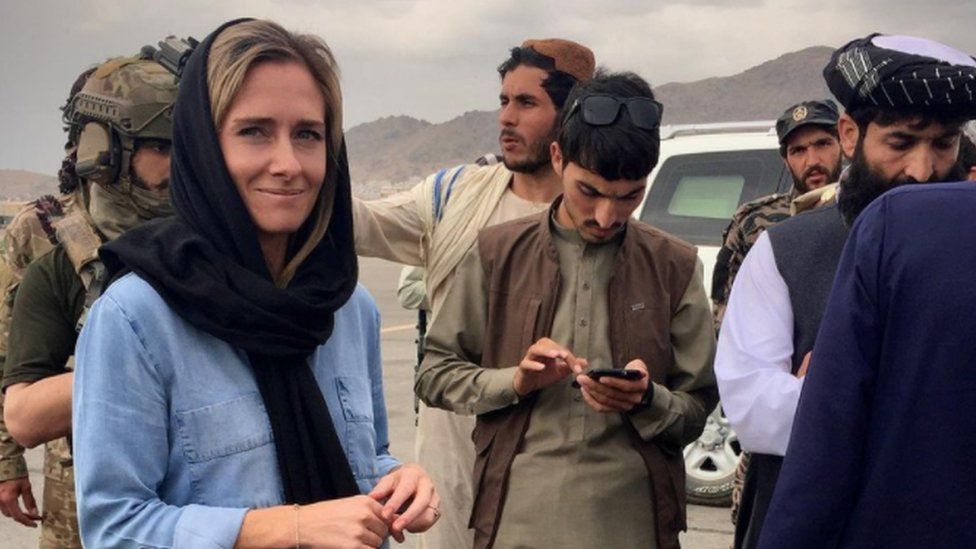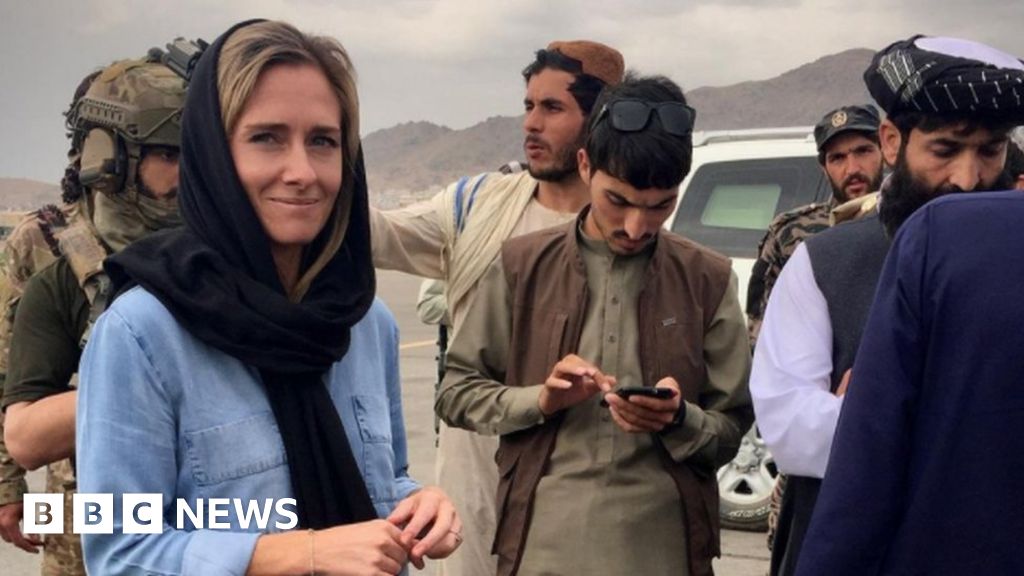
New Zealand has defended its border controls after a pregnant journalist said she had to turn to the Taliban for help after not being able to fly home.
Covid-19 Response Minister Chris Hipkins said there was a place for “people with special circumstances” like Charlotte Bellis.
Her story has cast a renewed spotlight on Wellington’s tough border measures designed to keep out the coronavirus.
Others took issue with her privileged relationship with the Taliban.
The Taliban has been regularly criticised for brutally clamping down on women’s rights by arresting, torturing and even killing activists and campaigners.
What did Charlotte Bellis ask the Taliban?
In a column written for the New Zealand Herald newspaper, Ms Bellis said the New Zealand government had last week rejected her application to return home to give birth.
Currently, Wellington allows citizens and permanent residents to enter, but only if they spend 10 days isolating in quarantine hotels.
As there is high demand for such facilities and a limited number of spots, many New Zealanders wishing to return have effectively been shut out of their country.
She compared that experience to the way she was treated by the Taliban, whom she had contacted to ask if she would be welcome in Afghanistan as an unmarried pregnant woman.
Ms Bellis and her partner, a Belgian photojournalist, had been in Afghanistan last year covering the withdrawal of US troops, and it was the only place she and her partner had visas for.
“You can come and you won’t have a problem. Just tell people you’re married and if it escalates, call us,” Ms Bellis quoted the unnamed officials as saying in response to her request.
“When the Taliban offers you – a pregnant, unmarried woman – safe haven, you know your situation is messed up,” she wrote.
It is not clear what happens to unwed, pregnant women in Afghanistan. However, single Afghan mothers have reported being frequently harassed by Taliban officials, pressured to give up their children, and having their custodial rights threatened.
What has the response to her column been?
Since Ms Bellis’ letter was published, there have been calls for New Zealand authorities to adjust the emergency quarantine allocation criteria to specifically cater for pregnant women.
Mr Hipkins defended the policy saying the system had “served New Zealand exceptionally well, saved lives and hospital admissions and kept our health system from being swamped.”
He added however that New Zealand officials had invited Ms Bellis to apply for a visa again under a separate emergency category.
Ms Bellis says she has also been offered asylum in another unnamed country since going public with her struggle.
However, her story has also come under criticism from observers, rights activists and Afghans themselves.
12 days since the Taliban abducted Tamana Paryani, her 3 sisters & Parwana Ibrahimkhil. No one knows where they are and what’s happened to them. Yet, we continuously see privileged people praising the Taliban.There are many ways to question one’s gov without praising the Taliban pic.twitter.com/O5xeyVXJWC
— sahar fetrat (@Sahar_fetrat) January 30, 2022

“The story is just a continuation of how non-Afghans are treated differently by the Taliban … than Afghans,” tweeted Austrian-Afghan journalist Emran Feroz.
“Journalists who were seen as Afghans often faced threats, beatings, torture and murder while non-Afghans … had tons of privileges and were welcomed and treated softly by all sides,” he added.
Most recently, there have been calls for the Taliban to release a number of women rights activists who have not been seen after their homes were raided and they were arrested.
You may also be interested in:
This video can not be played
